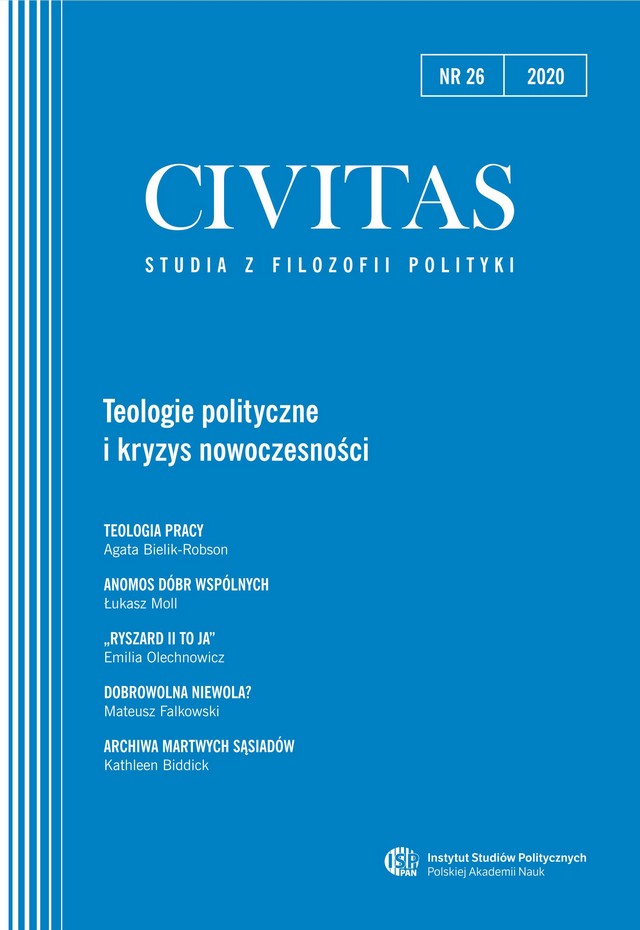Stałe i płynne. Od kategorii państwa do figury wielkiej przestrzeni w dyskursie Carla Schmitta
The Solid and the Liquid. From the Category of State to the Figure of the Great Space in Carl Schmitt’s Discourse
Author(s): Barbara BaryszSubject(s): Politics / Political Sciences, Philosophy, Political Philosophy, Political Theory
Published by: Instytut Studiów Politycznych PAN
Keywords: Carl Schmitt; the Great Space; Klaus Theweleit; Volk; fascism;
Summary/Abstract: The paper is devoted to the analysis of the evolution of the basic political figures of Carl Schmitt’s philosophical discourse from the 1920s to the early 1940s. It emphasized the importance of the transition from a statist perspective of an ordered, territorially closed state understood as the basic area of political implementation to a dynamic formation based on the category of Volk – the Great Space, which is devoid of defining characteristics in the form of territorial borders and stable legal rules (Grossraum). The analysis of this process is based on the analogy between the Schmittian concept of the Grossraum formation and Klaus Theweleit’s concept of fascist subject – fundamentally indefinite, broken and boundless. It is the transition from the category of the closed state to the category of Volk as a concrete and dynamic essence of the political that not only inscribes Schmitt’s thought in the broadly understood fascist discourse, but also makes Schmitt’s concept of the international political entity structurally and essentially similar to the borderless and fluid fascist subject described by Theweleit. In the proposed interpretation, the concept of the Great Space, contrary to what Schmitt claims, is not an objective description of the processes taking place in the international relations of that time, but the postulate of a new, expansive, fascist nomos of the Earth.
Journal: Civitas. Studia z filozofii polityki
- Issue Year: 2020
- Issue No: 26
- Page Range: 111-149
- Page Count: 39
- Language: Polish

